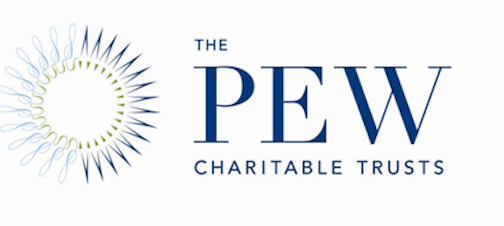Prepaid Debit Cards: Salvation From Overdraft Fees Or Putting Your Money At Risk?
 No overdraft penalties, no overspending and sometime low but occasionally ridiculous fees are all perks that have led consumers to an increased use of prepaid debit cards in the last year. And while the cards are convenient there are plenty of reasons consumers should by wary.
No overdraft penalties, no overspending and sometime low but occasionally ridiculous fees are all perks that have led consumers to an increased use of prepaid debit cards in the last year. And while the cards are convenient there are plenty of reasons consumers should by wary.
Prepaid cards offer consumers an alternative to traditional checking accounts, and often come with lower or fewer fees. However, with no federal laws or regulations tied to the cards, consumers could be putting their financial future at risk.
Two reports released today by the Pew Charitable Trusts highlight consumer demand for GPR prepaid cards (PDF), a growing concern over the lack of consumer protections and recommendations (PDF) the Consumer Financial Protection Bureau should consider.
The landscape of prepaid cards has changed immensely since they first entered the marketplace. The new report found that nearly 12 million consumers loaded more than $64 billion onto prepaid cards in 2012. Today three of the top 10 companies offering prepaid cards are highly recognizable banking institutions, while none offered the product last year.
Still, consumers’ reasons for using the prepaid cards remain mostly the same. Most reported using the cards as a way to avoid debt, control spending, and avoid problems of the past, such as, losing or closing a checking account because of excessive overdraft fees.
Prepaid cards can be a useful product to assist consumers in avoiding financial problems, but there are also vulnerabilities that need to be addressed before consumers take the plunge, says Susan Weinstock, director of Safe Checking in the Electronic Age project for Pew.
Because there are no federal laws or regulations to protect consumers who use the cards, they could be subjected to hidden fees, unauthorized transactions, or loss of funds. It’s that lack of oversight which undermines prepaid cards as a safe and easy way to manage money, Weinstock says.
One of the first steps would be to require cards be accompanied by clear, concise information about terms, conditions and fees. This would help to ensure consumers truly understand what the product they are using and are getting the best card to meet their needs.
On Thursday, Pew recommended six policies to the Consumer Financial Protection Bureau that would ensure the protection of consumers using prepaid cards:
- Prepaid cards should not have overdraft or other automated or linked credit features.
- Prepaid cardholders should be protected against liability for unauthorized transactions that occur either when a card is lost or stolen or a charge is incorrectly applied.
- Prepaid cardholders should have access to account information and transaction history.
- Prepaid cards should be required to provide information about terms, conditions, and fees in a uniform, concise, and easy-to-read format. This information should be included with the card packaging so that it is accessible pre-purchase at retail outlets as well as online.
- Prepaid card funds should be federally insured against loss caused by the failure of an institution.
- Predispute binding arbitration clauses in cardholder agreements, which prevent cardholders from having the choice to challenge unfair and deceptive practices or other legal violations in court, should be prohibited.
Consumers Continue To Load Up On Prepaid Cards [Pew Charitable Trusts]
Why Americans Use Prepaid Cards [Pew Charitable Trusts]
Want more consumer news? Visit our parent organization, Consumer Reports, for the latest on scams, recalls, and other consumer issues.

